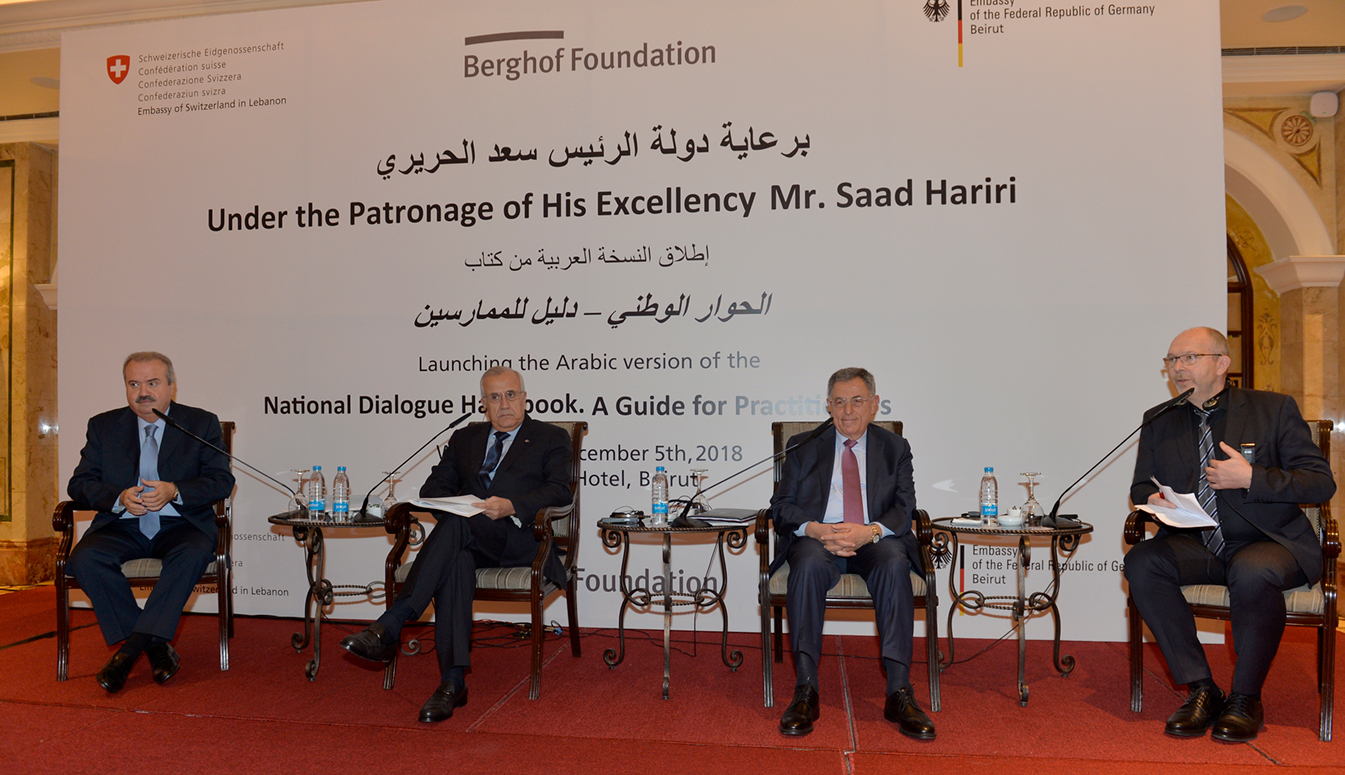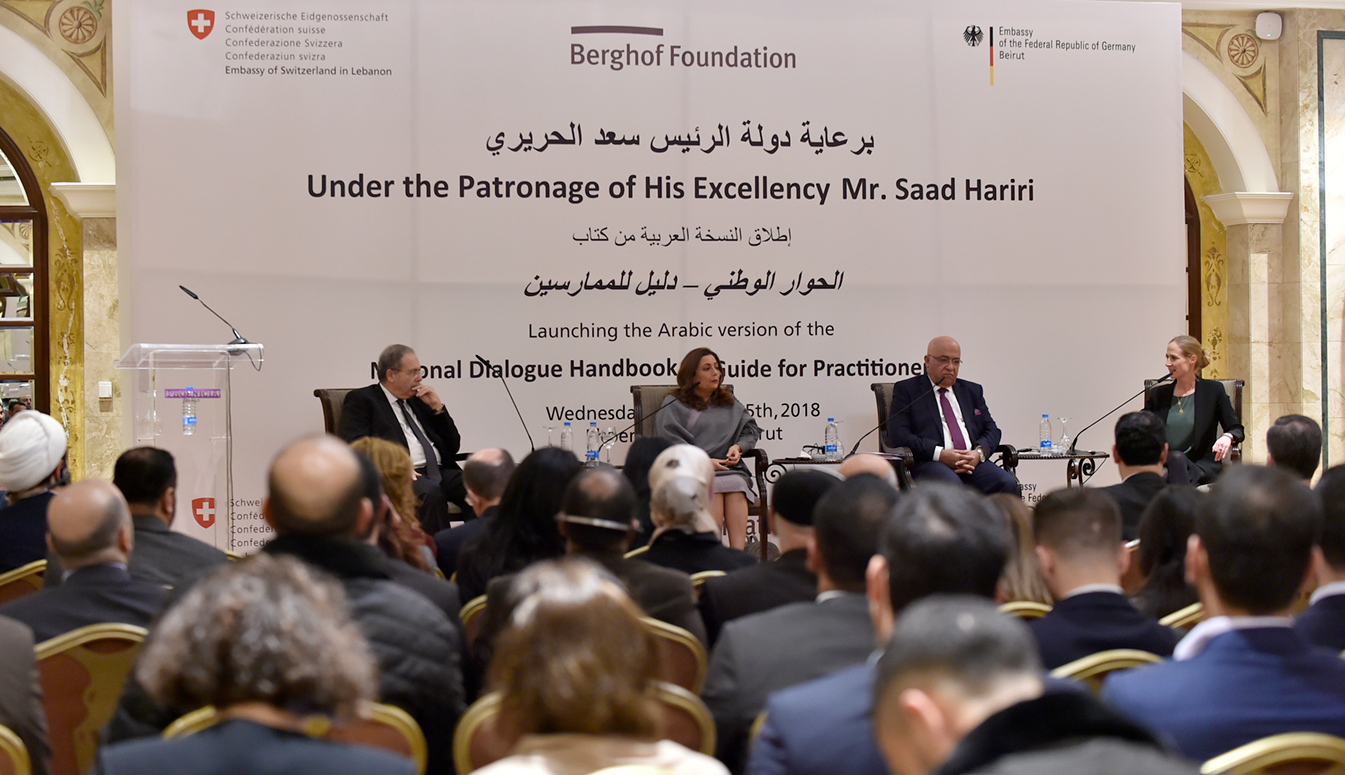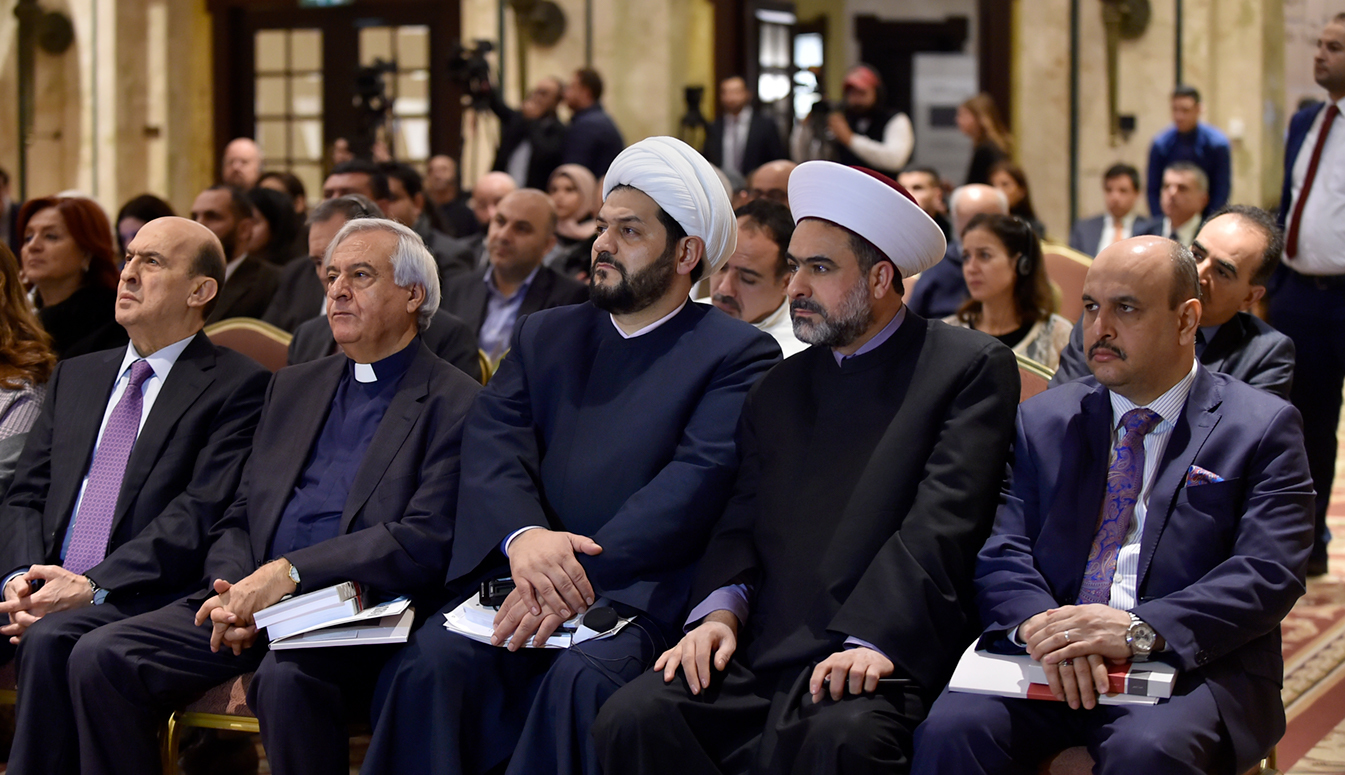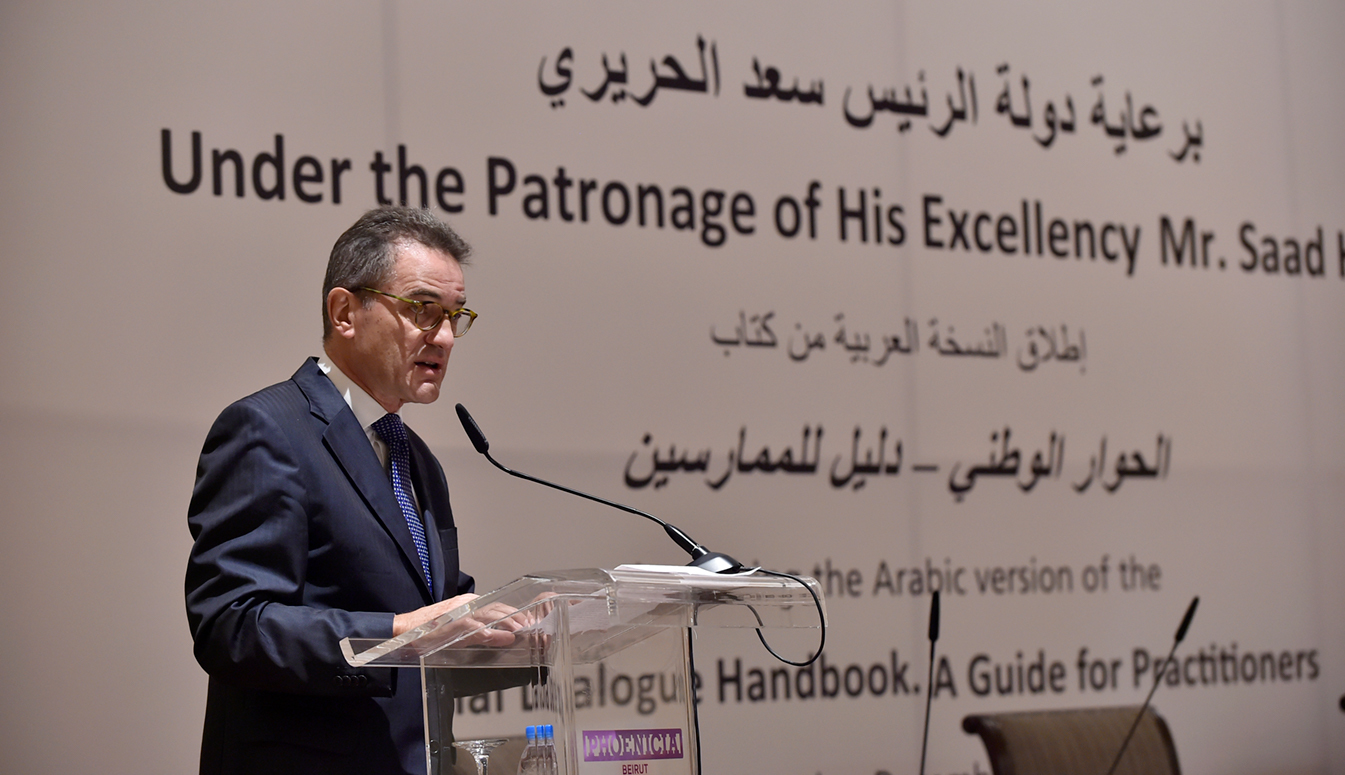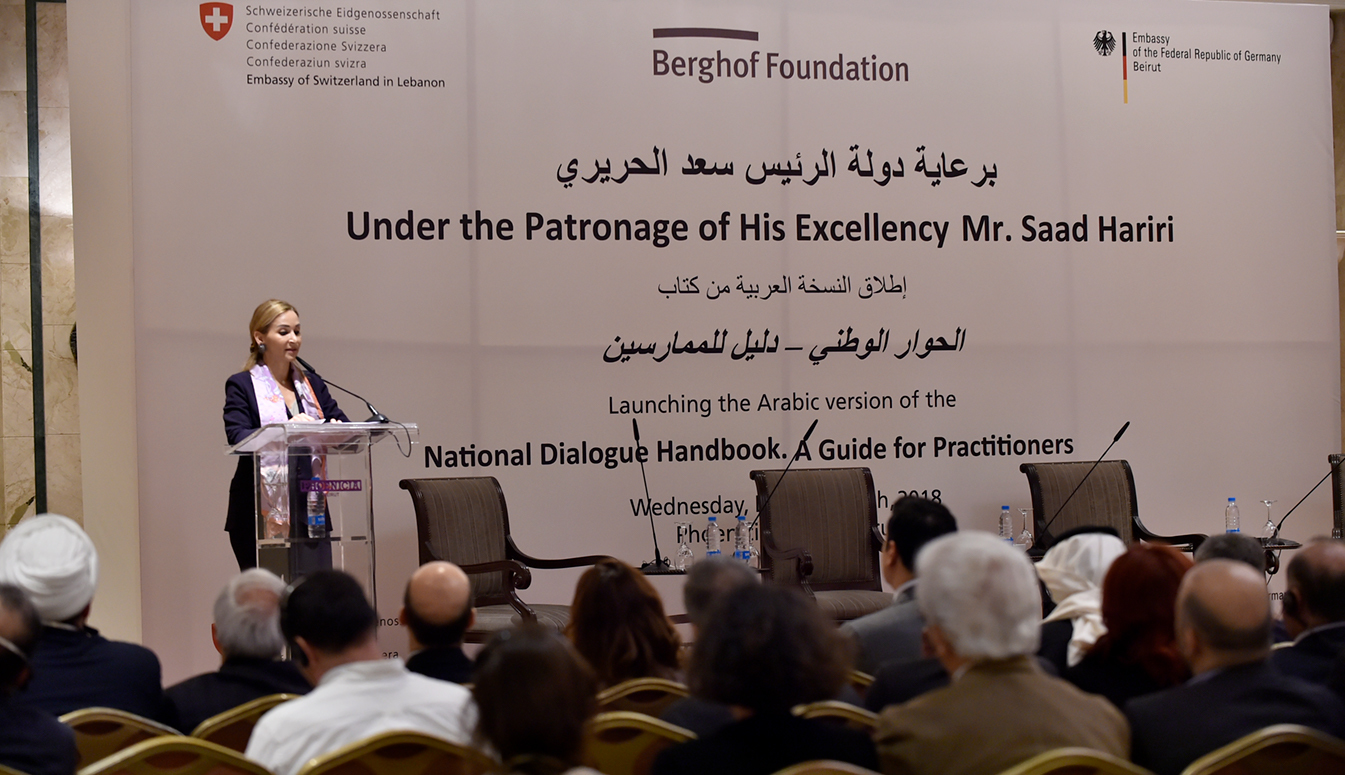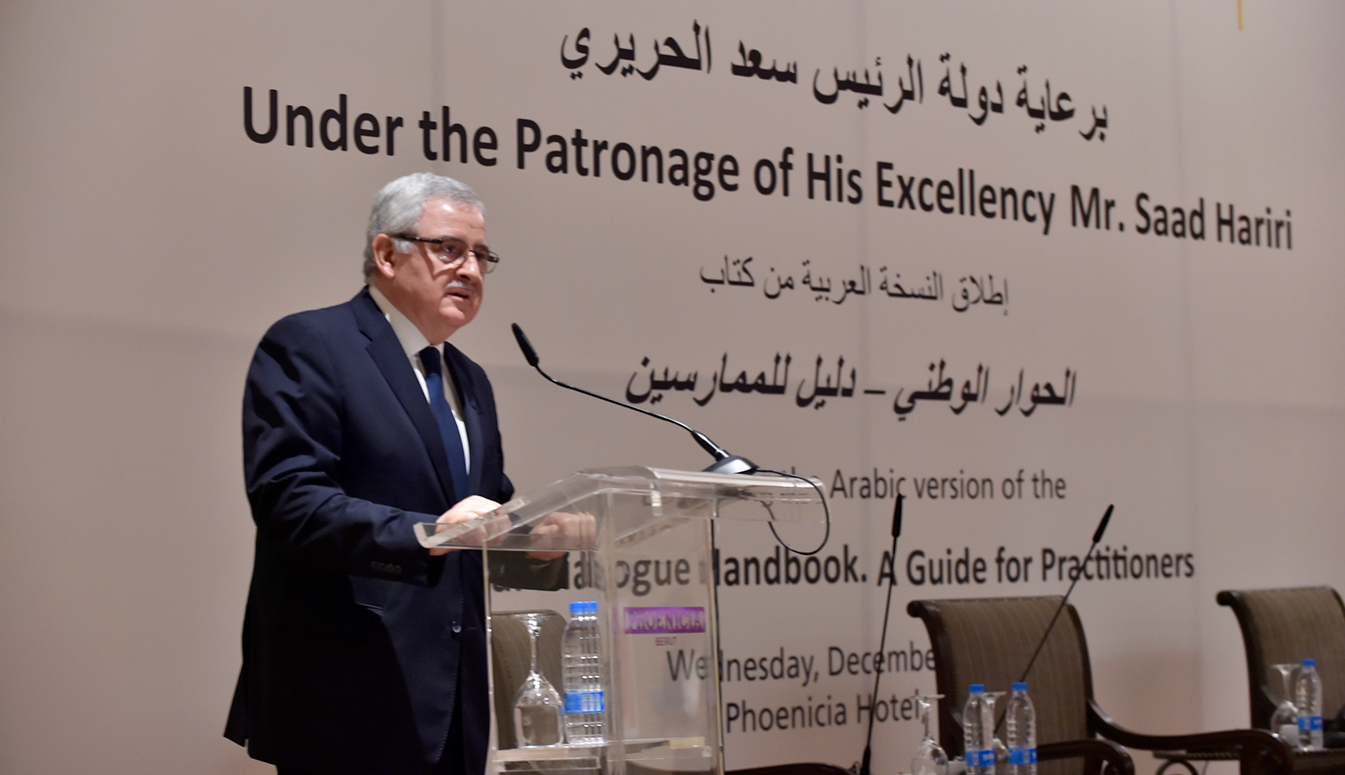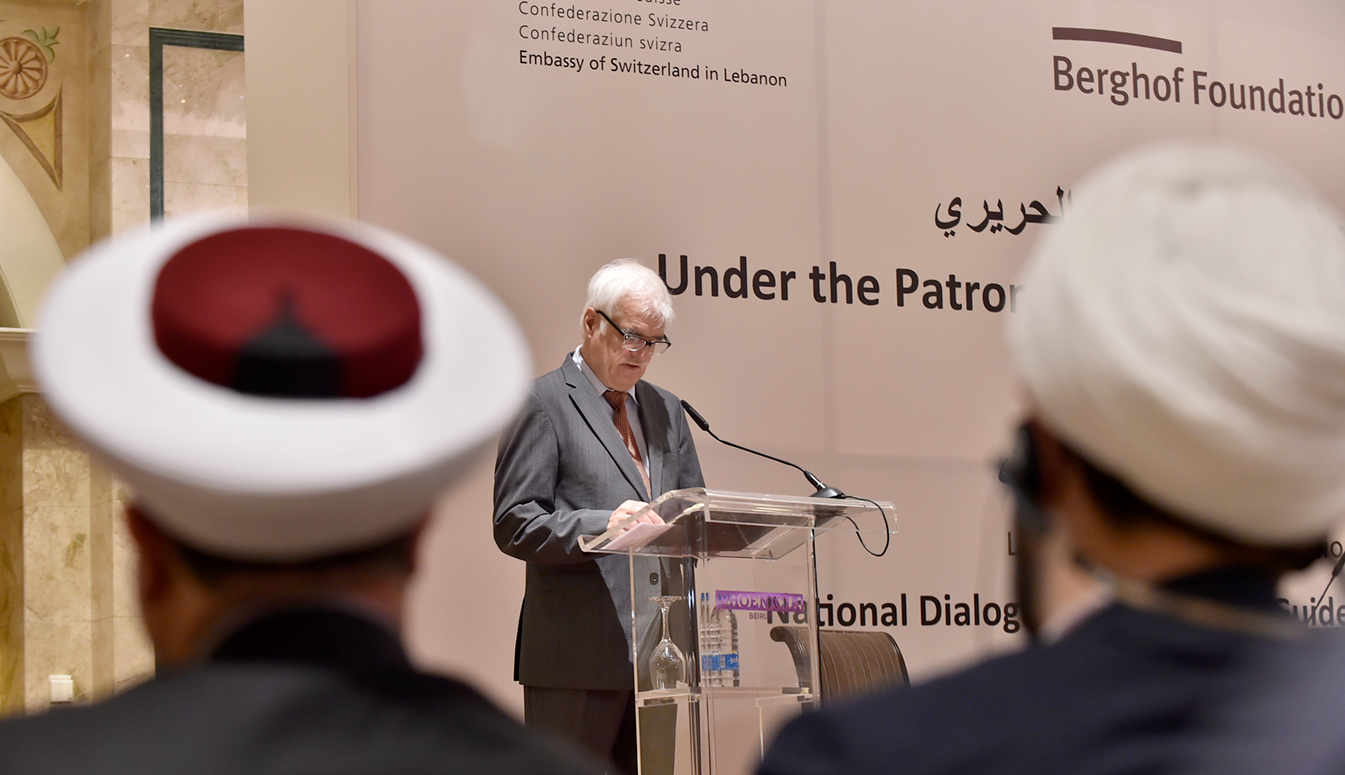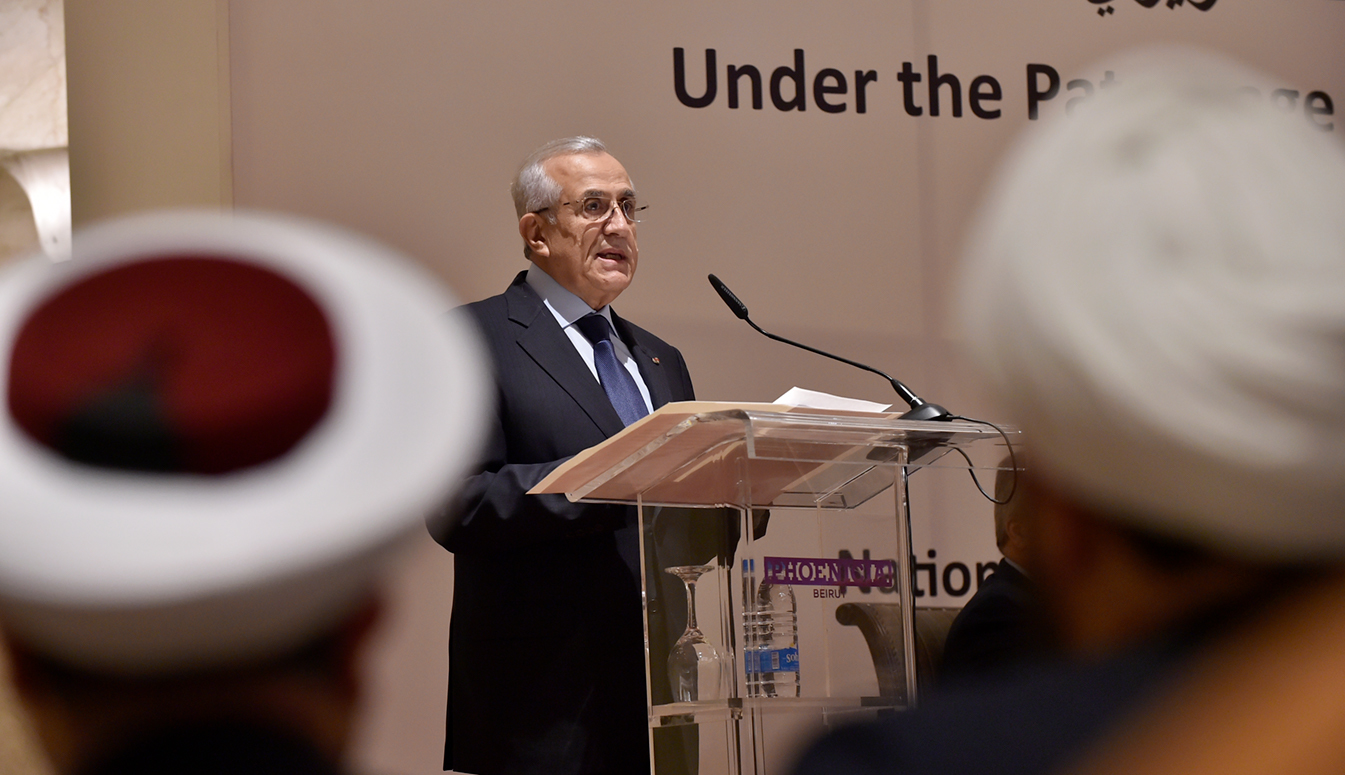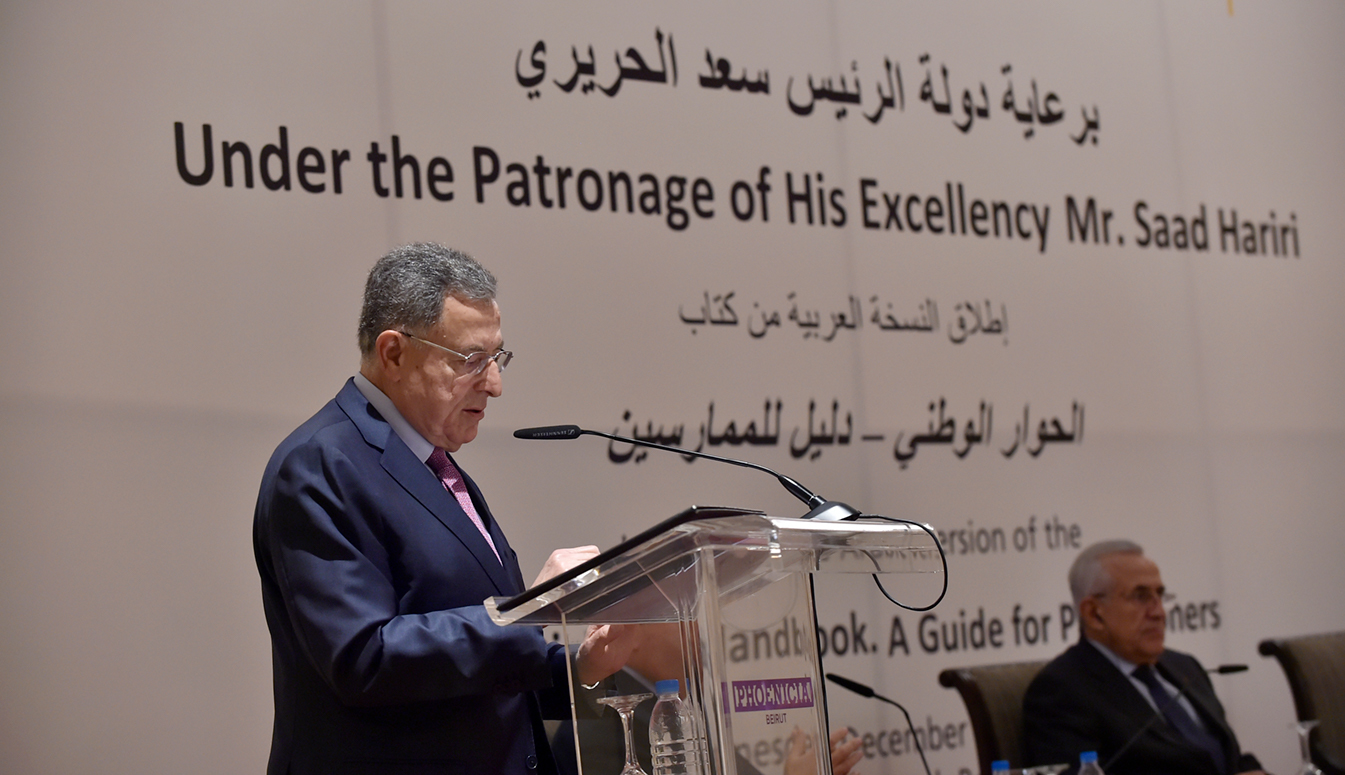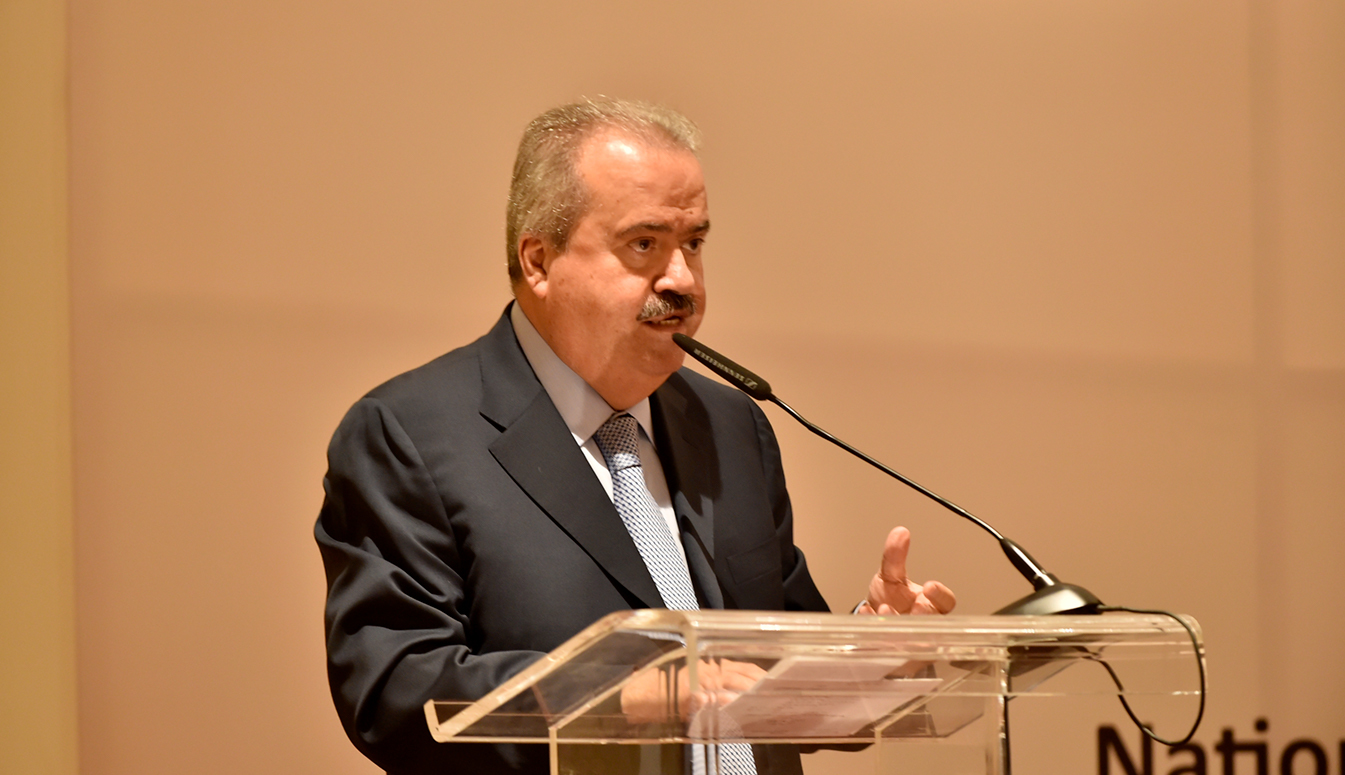FEATURE | 12 Mar 2019
National Dialogues in the Middle East and North Africa
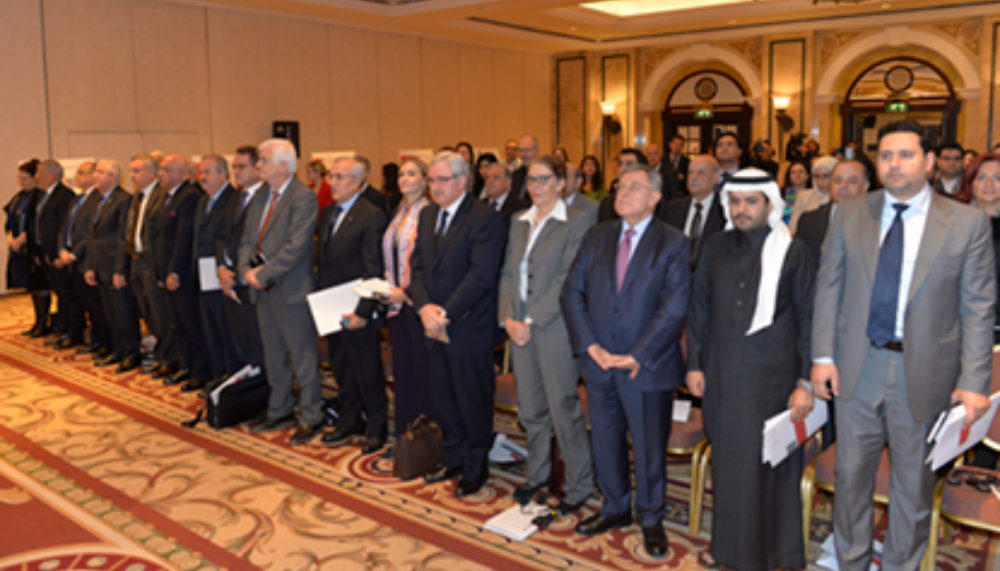
National Dialogues are – and have long been – part of the political and social culture of the Middle East and North Africa, and in particular Lebanon.
National Dialogues are – and have long been – part of the political and social culture of the Middle East and North Africa, and in particular Lebanon.
The Berghof Foundation recently launched the Arabic version of our National Dialogue Handbook: A Guide for Practitioners. To mark this, we organised a dissemination event in Beirut, Lebanon, in cooperation with the embassies of Germany and Switzerland, under the auspices of Prime Minister Saad Hariri.
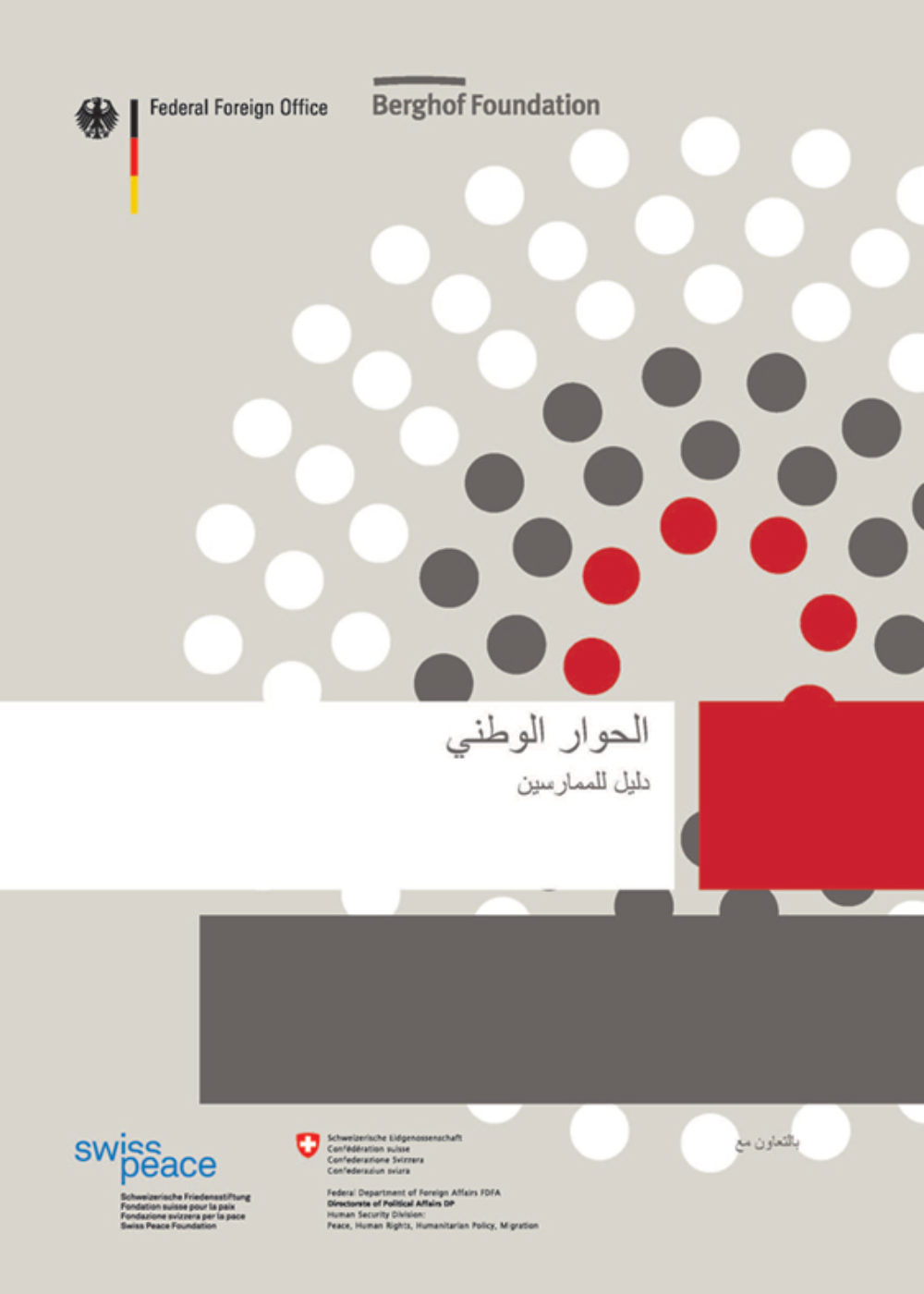
Insights from Lebanon
National Dialogues are nationally owned political processes aimed at generating consensus among a broad range of national stakeholders in times of deep political crisis, in post-war situations or during far-reaching political transitions.
Serving as a critical platform of exchange outside Parliament and the Council of Ministers, a National Dialogue Committee was established as early as 1975 in Lebanon. The latest one took place from 2008 to 2014. Time and again, National Dialogues have served as an important consensus-building mechanism for core political actors to address issues of common national concern.
This sentiment was echoed by German Ambassador, Dr. George Birgelen, and Swiss Ambassador, Monika Schmitz Kirgöz. During the conference opening they both emphasised the importance of dialogue as a means to avoid and overcome violence and conflicts peacefully. Lebanese Minister of State for Women’s Rights, Jean Oghassabian, who represented the prime minister, equally expressed his support for National Dialogue and dialogues as tools for conflict settlement.
The first panel then focused on insights from the Lebanese experience on preventing conflict and building consensus through National Dialogue and included former President Michel Suleiman and former Prime Minister Fouad Sinioura. The panelists shared their insights from their involvement in the last Lebanese National Dialogue.
Regional experiences of National Dialogues
In the second panel, the focus shifted to the regional experience. The panelists, including former UN Special Representative for Libya, Dr. Tarek Mitri, Nobel Peace Prize winner Ouided Bouchamaoui, and Musa Maaytah, Jordanian Minister for Political and Parliamentary Affairs, looked at the Tunisian, Jordanian, and Libyan experiences with National Dialogues and discussed the lessons learned from the past and opportunities for future processes.
The Berghof Foundation developed the National Dialogue Handbook in cooperation with swisspeace. It is based on detailed case studies on Guatemala, Lebanon, Libya, Mali, Nepal, Sudan, and Tunisia and complemented by 19 country factsheets.
The purpose of the National Dialogue Handbook is both to offer an analytical framework of National Dialogue processes and to serve as a practical tool for those engaged in the implementation of these processes. It is a unique practice-oriented resource guide for comprehensively designing, implementing and supporting National Dialogues.
In addition to Arabic, the National Dialogue Handbook is also available in French and Spanish.
Media contact
You can reach the press team at:
+49 (0) 177 7052758
email hidden; JavaScript is required
